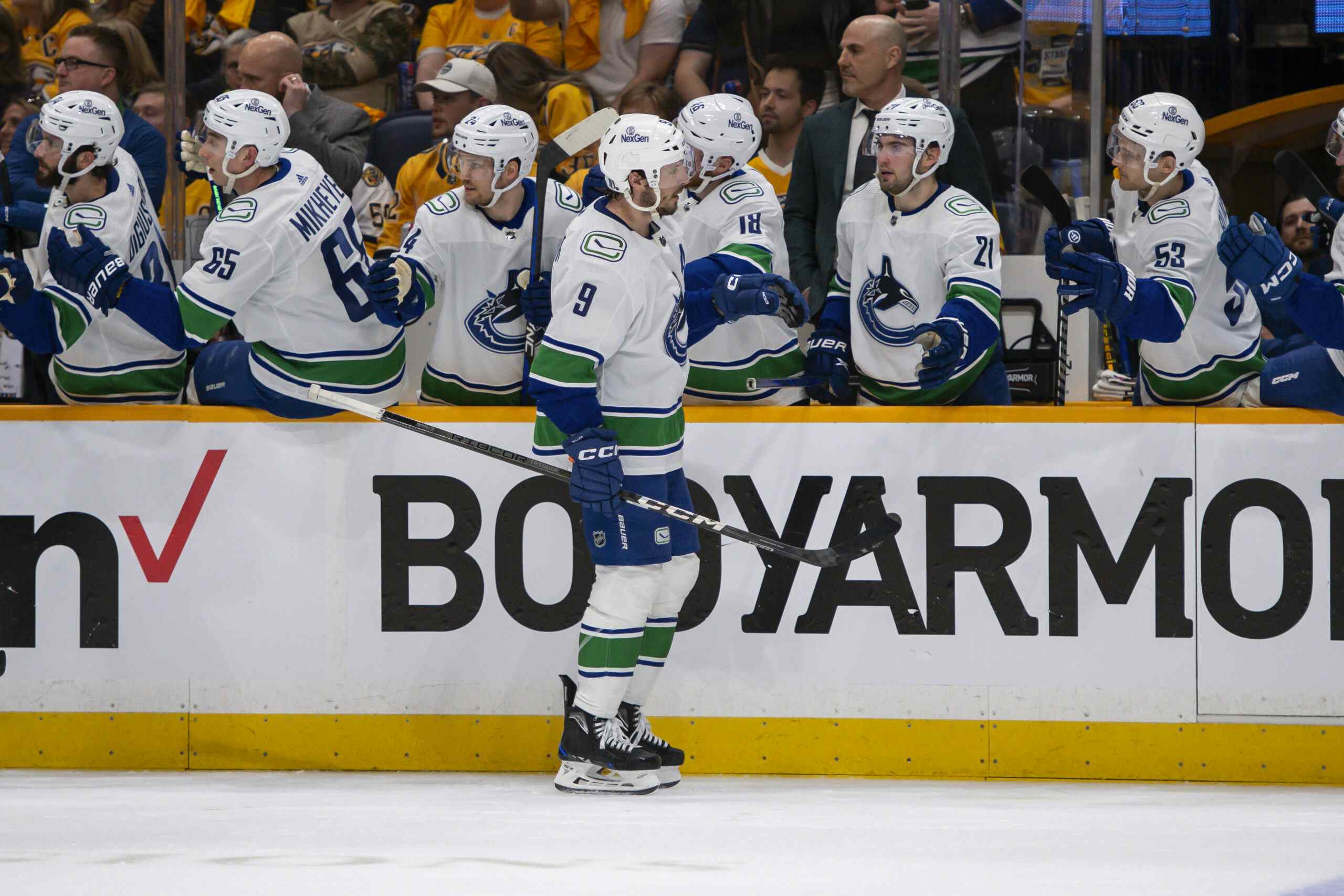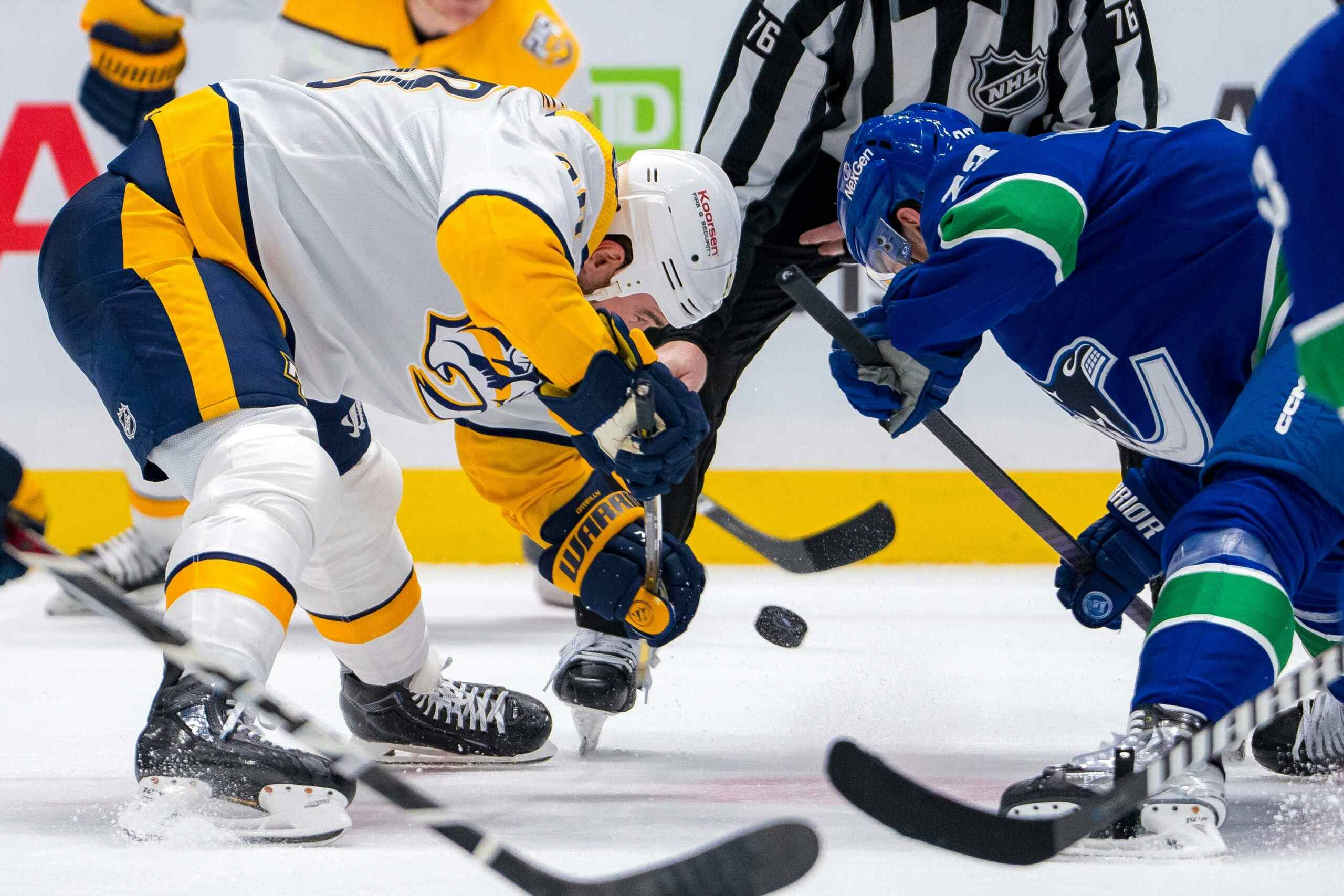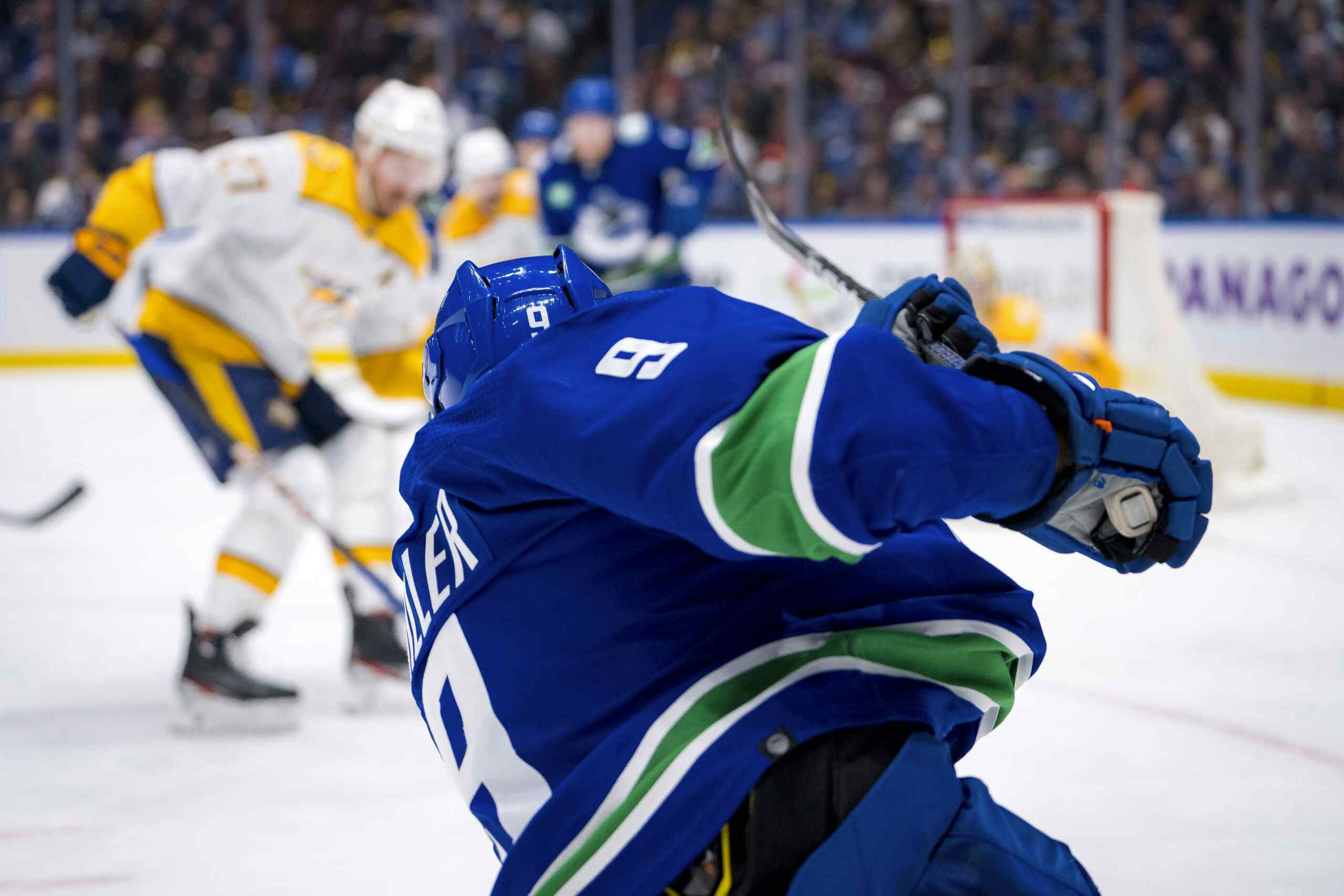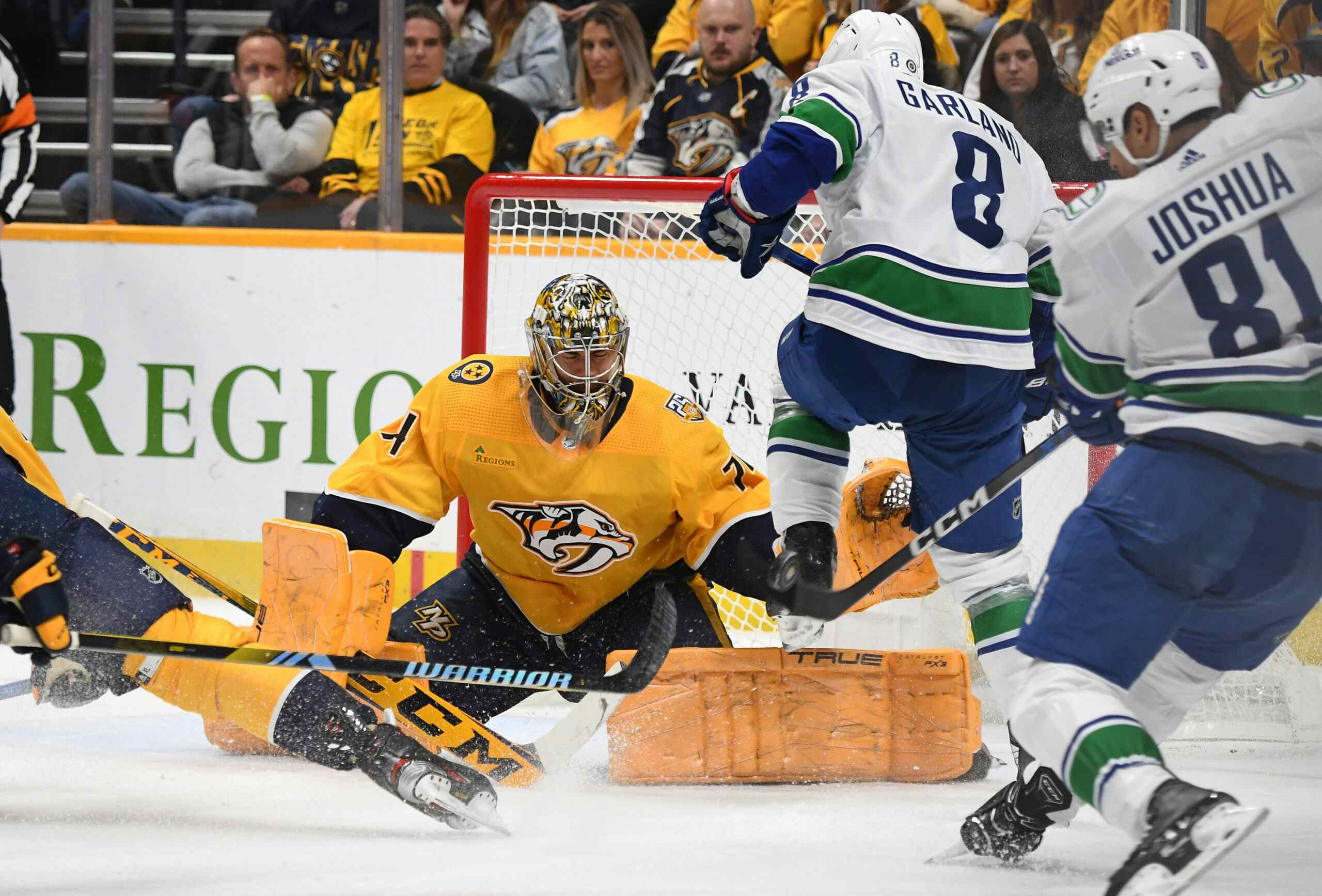Don’t Believe Anything Iain MacIntyre Tells You About The Canucks And Rebuilding

7 years ago
Iain MacIntyre was on TSN 1040’s midday show yesterday to discuss the team’s direction and the job Willie Desjardins has done as head coach. MacIntyre provided about six minutes of analysis, but it was an early exchange that caught my ear and struck me as a bit misguided:
Iain MacIntyre: “The one thing that I’ll say, that I think is unfair about criticism of the hockey team generally is that it seems often now people are advocating… that the priority needs to be on development and bringing kids along and making the team younger… and yet they’re outraged and hyper-critical when the team loses.”Don Taylor: “There you go. That’s well said.”IM: “You can’t have everything. You can have one or the other. If people think that the young players are already better than the experienced players I’m afraid that’s just not reality. Older players, even ones that might be considered journeymen, or pedestrian, or depth players in the NHL, if they’ve been around they still have more know-how, they have more trade craft than younger players who have, granted, perhaps more talent, and certainly more potential, but haven’t learned to play the game.”
There’s a lot to chew on here, so I’ll deconstruct this point by point.
It seems often now people are advocating… that the priority needs to be on development and bringing kids along and making the team younger… and yet they’re outraged and hyper-critical when the team loses.
This is perhaps the greatest misconception to plague the Vancouver hockey media over the past three seasons, and to be fair, this isn’t unique to Iain MacIntyre in the slightest. He’s just the most recent example. The purpose isn’t to put him on blast, but rather to finally put a group of misconceptions that have permeated the local media to bed.
What MacIntyre is completely failing to understand here, as others have before him, is the distinction between criticism of process and criticism of results. I don’t claim to have insight into the thoughts and feelings of every Canucks fan, but the majority of the criticism I’ve seen and the majority of which we’ve published in this space and others like it, has very little to do with the fact that the Canucks are losing, and much more to do with how they’re losing.
They’ve been raked over the coals for playing boring, low-event hockey, for doling out undeserved ice time to marginal players, or for scratching promising youngsters, but they’ve rarely been criticized simply for failing to close out games.
You can’t have everything. You can have one or the other.
This was the highlight of MacIntyre’s radio hit for me. It’s funny to see one of the management’s biggest defenders in this market suggest that the team can’t have it both ways considering having it both ways has been their stated goal from day one. It’s even funnier in the context of the rest of the interview, where IMac goes on to defend the Canucks’ attempts to be competitive and rebuild at the same time, something he just said doesn’t work. Hmm…
In this instance, IMac has provided us with a classic example of moving the goalposts. The message from the outset from this management group has been that they could compete for the playoffs, and that a winning environment will help the development of their young players. There have been many people in this market that disagree with that direction, but it only seems fair to judge the team based on the criteria they themselves have established.
If people think that the young players are already better than the experienced players I’m afraid that’s just not reality.
It’s difficult to know what players IMac is talking about specifically, but at face value, this couldn’t be further from the truth. In general, this line of thinking is incredibly flawed from the outset, as it can be used to imply that experience makes Paul Gaustad a better forward than Auston Matthews. That’s likely distorting MacIntyre’s point, but his assertion doesn’t ring any truer when applied to the Canucks. This season, only three Canucks’ players produced offence at a top-six clip: Bo Horvat, Jannik Hansen, and Sven Baertschi. Those players rank 5th, 7th, and 8th among Canucks forwards in TOI/GP, respectively. So, the idea that ice time has been divvied up in a manner befitting a meritocracy doesn’t exactly hold water. Even Hansen, one of the team’s most established players prior to the trade to the San Jose Sharks, wasn’t being used to his full potential at even-strength, and certainly not on the power play.
Older players, even ones that might be considered journeymen, or pedestrian, or depth players in the NHL, if they’ve been around they still have more know-how, they have more trade craft than younger players who have, granted, perhaps more talent, and certainly more potential, but haven’t learned to play the game.”
Given what MacIntyre says immediately following his claim that the Canucks’ veterans are still better options than the team’s youth, it’s likely he’s actually referring to less established players like Nikolay Goldobin and Reid Boucher. That doesn’t make MacIntyre’s claims any less ridiculous, though. While players like Brandon Sutter and Jayson Megna may have the edge over these players in terms of experience, that experience isn’t driving results. They’re among the team’s worst forwards by both offensive and defensive metrics, whereas Boucher’s numbers have been positively glistening, albeit over a small sample. Goldobin is still an unknown commodity for the most part, and carries a reputation for poor defensive play, but he at least provides the team with some form of tangible value, which is more than can be said for some players in the team’s lineup.
I think I speak for most fans when I say that frankly I’m sick and tired hearing that this team has to fight tooth and nail to finish 20th overall because the market won’t support a team that finishes 30th overall. Clearly, this market can’t stand the thought of a rebuild, right? I assume that’s why the trades for Jonathan Dahlen and Nikolay Goldobin, transactions that clearly substituted short-term pain for long-term gain, where met with almost unanimous approval by the fanbase? And why the moves the team has made with it’s eye on the present day have been much less well-received?
Anyone who suggests this market isn’t accustomed to losing needs a serious history lesson, not only regarding the past three years, but also the majority of the thirty or so that preceded the West Coast Express Era. What’s made the Canucks’ recent run of awful play so unpalatable hasn’t been the losses themselves, but the amount of assets, money, and effort that’s been poured into putting lipstick on this pig. Brandon Sutter, Erik Gudbranson, Loui Eriksson… those aren’t transactions that were made with the intention of making the team’s future brighter. They were made for the express purpose of improving the team in the here and now. From that standpoint, they failed spectacularly.
To his credit, IMac does have enough sense to see that the team’s young players have more talent and potential than their older counterparts. They just have to learn to play the game. From where I stand, it would seem that the easiest way to learn to play would be for those players to get as many reps as possible while the games don’t mean anything, rather than by sitting in favour of players that won’t be here next season.
Maybe that’s unfair criticism. You can’t have it both ways. Unless you’re the Canucks from six months ago, apparently.





